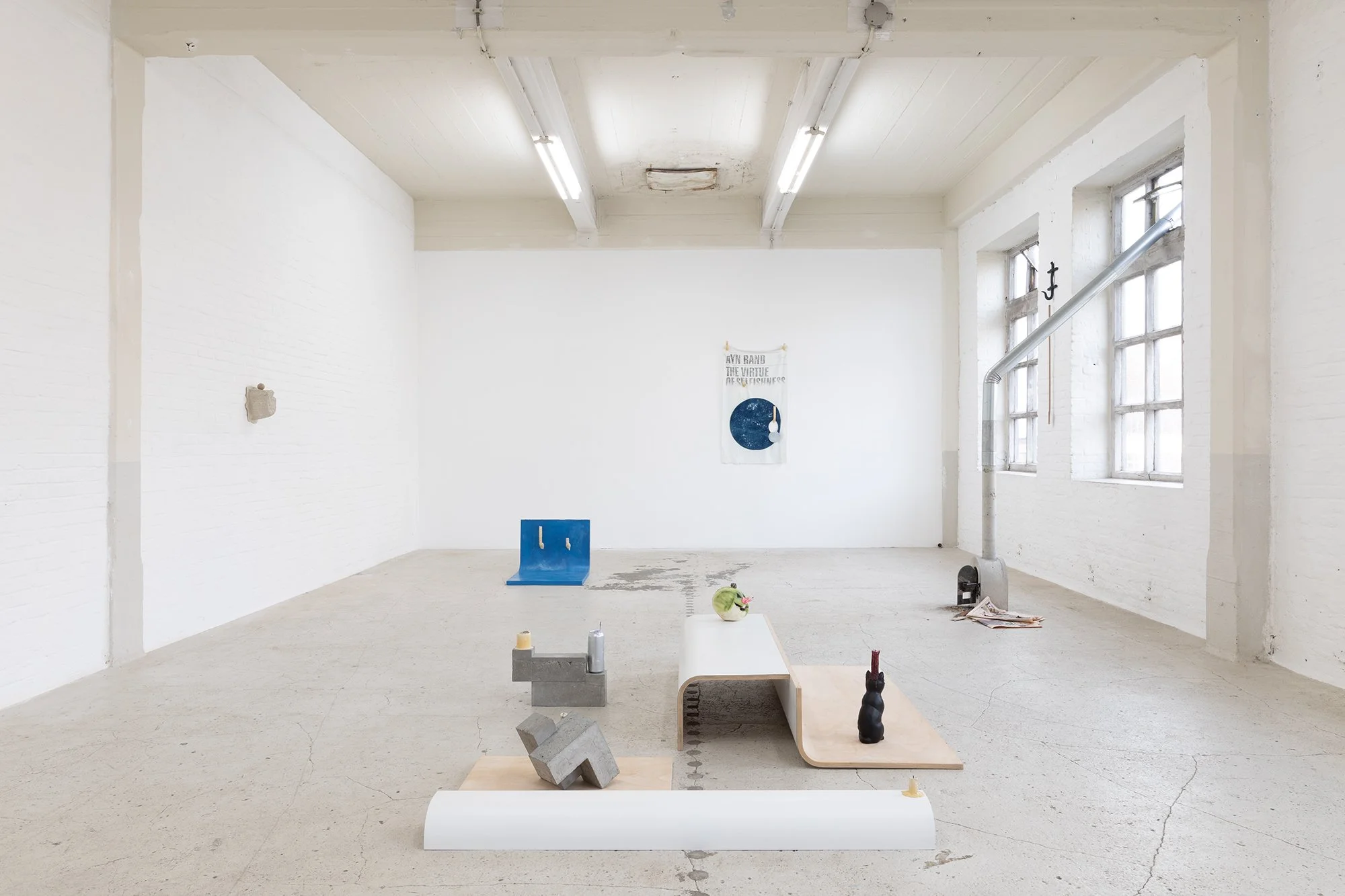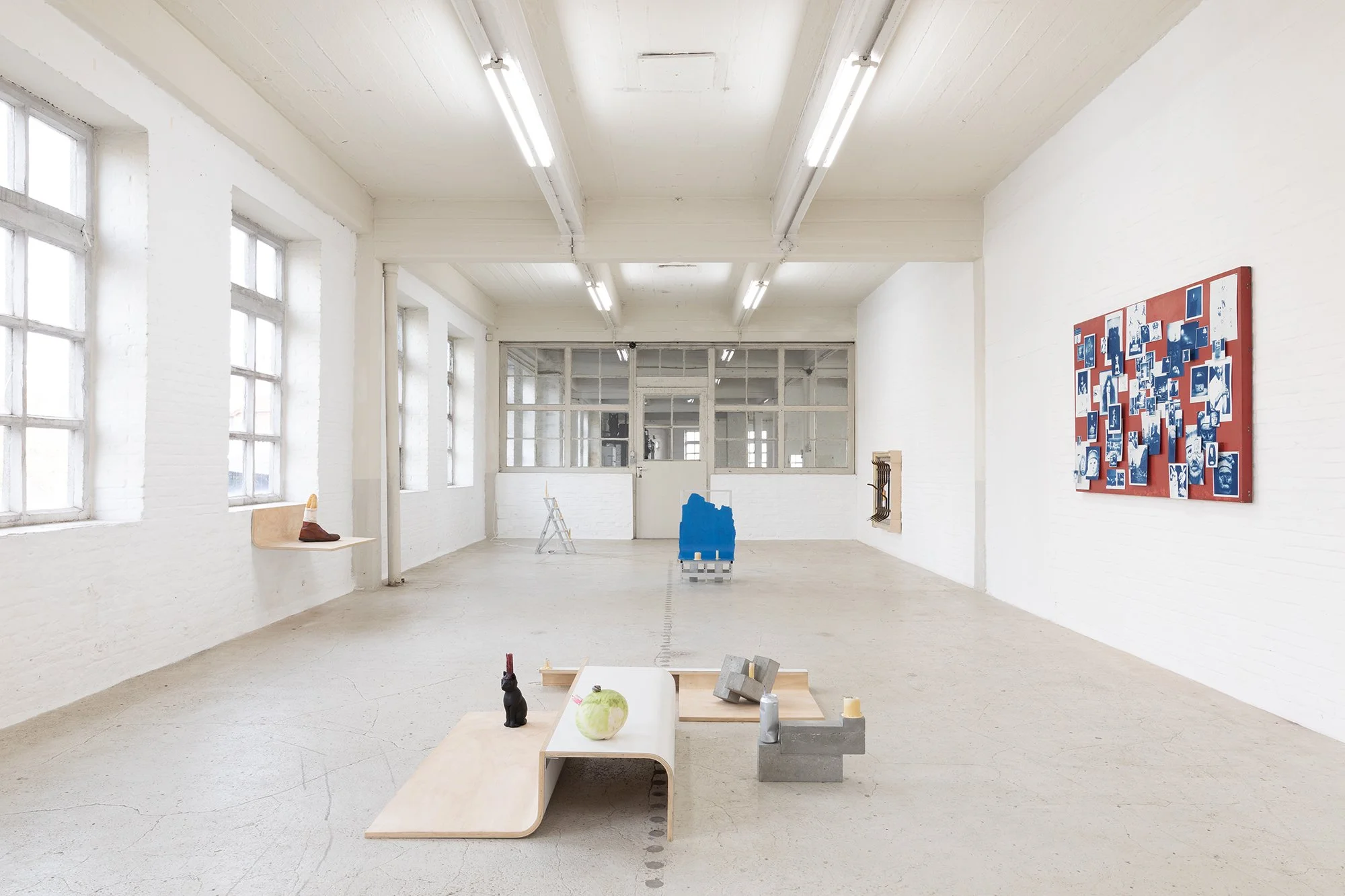PAIN [peyn] QUOTIDIEN
→ Brasserie_Atlas_Anderlecht_Belgium←
13 - 21/10/2022
→ Click to download PDF of short story and exhibition guide ←
Pain Quotidien
Concrete, steel, galvanised stove pipe and hardware, Financial Times (editions c. 2008)
2022
A silicone impression of a stone decrottoir was taken, and from this, a mold was constructed to cast a functional bread oven in concrete.
The decrottoir (or boot scraper) is, architecturally, a near constant occurrence in the residential streets of Brussels. Walking these streets, one need only look down to see a decrottoir nestled beside a doorway, possibly forgotten, or partially hidden behind a snaking vine or garbage can. Arising during a particular moment in the city’s history, these unassuming nooks mark a point in time when it became fashionable for the very wealthy to be seen strolling the more well appointed avenues of Brussels.
Issues of the Financial Times, all published in the year 2008, were used as fuel to periodically activate the oven throughout the duration of the exhibition.
Peyn Quotidien
Synthetic plaster, Dorodongo (dorodongo made from material collected from decrottoir)
2022
The negative space of the decrottoir that was used in the production of the concrete bread oven was cast in synthetic plaster, then inverted and hung on the wall. In its new upsidedown form it became a shelf; a small viewing platform on which to place and hold a dorodango. A pastime of Japanese schoolchildren, the Dorodongo is a ball formed from clay and a fine powdery soil that is carefully smoothed and polished. Sometimes the surface of a particularly refined dorodango can resemble polished stone or glassy marble. This dorodango was made in part from the filtered dust and debris collected from the decrottoir.
Baker's Boot
Synthetic plaster, acrylic paint
2021
Auto-reply mood board
Cyanotype photographs on paper, neodynium magnets
Mount: Steel facade panel with original paint, from the World Trade Center buildings (Brussels)
Images generated using Midjourney and DALL-E
2022
A short story was written parallel to the exhibition. The result became a kind of secondary reading, which enfolded the installed works within the narrative world of an unemployed baker living under quarantine in the city of Brussels.
During the writing process, descriptive passages were extracted and fed as prompts into the image generating algorithms called Midjourney and DALL-E. The images returned by the algorithms were then worked back into the story as new descriptions. The resulting feedback loop between text and image, and, author and machine, opened up an oscillating discourse of give and take.
Cyanotype photographs, a mid-nineteenth century technology, were developed from the images generated by Midjourney and DALL-E, producing a physical analog to the dreaming images of early AI.
Midjourney and DALL-E are iterative in how they can generate images. An image can be used to prompt a new image, and from that image, the next. A dreamlike logic connects the images, producing something like a narrative experience as hyper specific details pass through shifting tableaus. The images developed as cyanotypes were positioned with neodynium magnets on a salvaged facade panel from the World Trade Center buildings in Brussels, Belgium. Arranged in sequential threads, the passages unfolded like scenes in a film, with new and unexpected narratives emerging as they became entwined with one another.
The Selfishness of Virtue
Cyanotype and Acrylic Paint on cotton, Synthetic Plaster, Acrylic Paint
2022
Two points of light burning in infinite space
Synthetic plaster, acrylic paint, aluminium, hardware
2022
Climbing up, melting down
Synthetic plaster, acrylic paint, aluminium, multiplex, LED lights, power supply
2021
Bars of iron and bread
Multiplex, foam rubber, MDF, synthetic plaster, acrylic paint, silver leaf, acrylic paint binder, iron filings
2021
Two points of light burning in infinite space
Synthetic plaster, acrylic paint
2022







